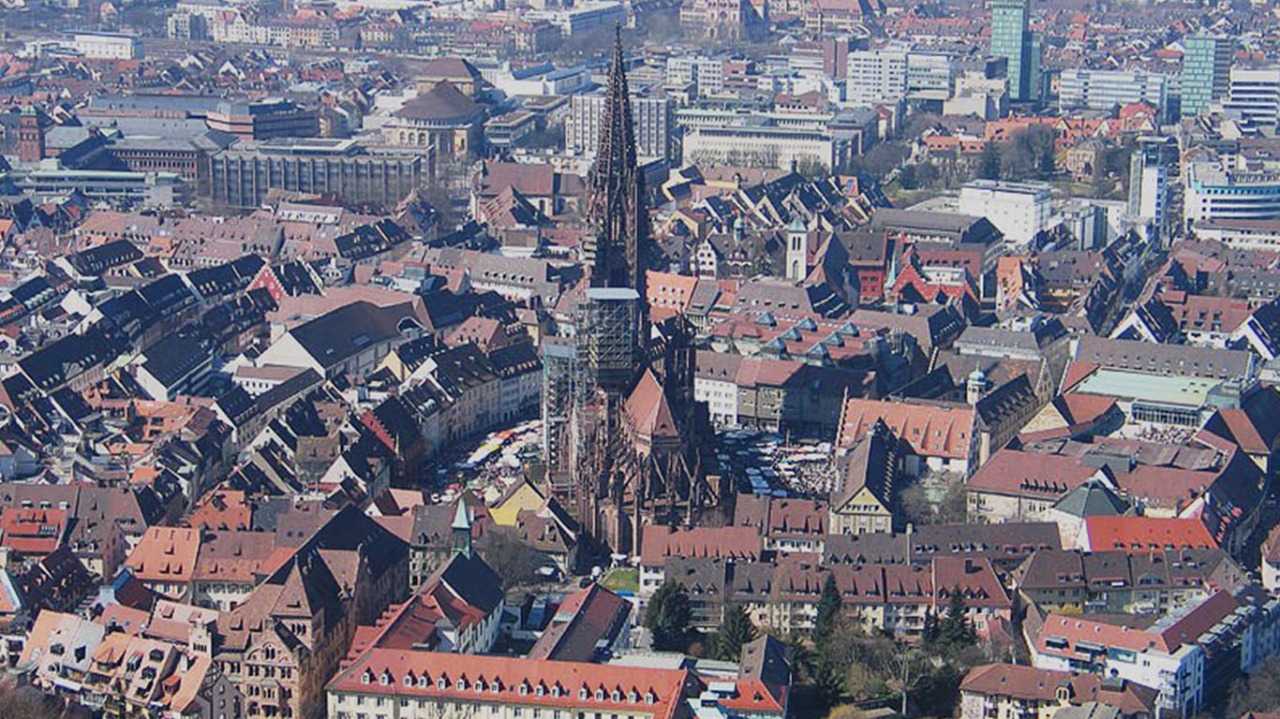Recently Germany’s most sustainable, liveable and child-friendly city, Freiburg, celebrated 900 years of its establishment. The greenest province in Germany, Baden-Württemberg bears the country’s greenest and most sustainable city, Freiburg. Located near the trigon boundary of Germany, France and Switzerland, this medieval town lies cloistered on the south-western circumference of the Black Forest.
The city, spread over an expanse of 155 sq km, has an estimated population of 2,20,000 people. The city’s exuberant population consists of young university students and faculty who play a significant role in the city’s colourful quotidian life.The Albert Ludwig University, one of Germany’s oldest universities founded in 1457, has a total of 24,00 students which accounts for about 10% of the city’s total population. This makes Freiburg populace one of the youngest in Germany. In fact the young Mayor of the city, Martin Horn, was all of 34 when he assumed the office in 2018.
Freiburg is often referred to as the ‘ecological capital’ of Germany and is the only city in Germany where the Green Party has the strongest foothold. In 2002, Freiburg elected Germany’s first Green Party Mayor, Dieter Salomon. Under his visionary leadership, the city was able to construct the Town Hall that became the world’s first ever surplus energy generating public building in 2017.
In layman terms, the building produces more energy it consumes, returning the surplus to the public electricity grid for the city. In the first year post its inauguration, the solar panels fitted in the structure generated 560 megawatt hours of electricity; equivalent to the yearly consumption of 140 households hosting four persons each.
The city is known as cyclists paradise as people own much less cars in comparison to the number of bikes that one can spot in this city. When post the second world war, most of the German cities embarked upon building modern towns placing a car-based transportation model at the centre of the construction model, Freiburg opted for an alternative approach. The planners envisioned creating a “city of short distances”, emphasising upon public transportation, biking and ample pedestrian spaces.
To ease the traffic cramming, wider roads were built in order to facilitate the accommodation of trams. The city has its 70% population residing within 500 metres of a tram stop. Paved with natural stones, the pedestrian floor of the city streets is a work of art. With geometric patterns, historical insignia and mosaic patterns made of colorful stones, the floor is the city’s ‘carpet’.
The household planning in this city, especially Vaubam town that lies 3km from Freiburg, deserves special mention. This sub-urban town is an epitome of environmentally sensitive community involvement. Freiburg has an energy consumption cap of 65 kWh/m2a and Vaugum takes it a step further with “collective building”, wherein the 5,500 residents of the town build an apartment on a collectively bought piece of land rather than opting for individual apartment purchases.
Cooking gas is produced from the anaerobically treated organic waste from the household, and the grey water is purified and released into the water cycle. To avoid the building of supermarkets and skyscrapers, shops and grocery stores are located at the ground floor of the household buildings.
One of the most vibrant attractions of Freiburg city is its farmers’ market, which is one of the most successful and extensive in the entire Europe. Organically grown produce is displayed in its myriad hues everyday from 7:a.m in the morning to 1:00 p.m in the afternoon. The city has provided 3,800 small privately owned garden allotments on the outskirts of the city to the citizens to grow their own food. Freiburg has won the Dubai International Best Practices Award for sustainable development in 2002 and was subsequently the most sustainable city in Germany in 2012.
Based on the city’s model, Padua in northern Italy installed the country’s largest solar farm and Mdisaon in the US city of Wisconsin is all set to construct a Sustainability Centre based on the Solar Centre in Freiburg. In 2010, Freiburg was awarded the national award for its efforts in climate protection.
On the 900th anniversary of this futuristic, environmentally conscious city, the world can take a leaf out of its successful model to envision a better and sustainable future. The principles of community participation, energy efficiency, eco-friendly infrastructure and holistic planning model are some of the requisites lessons we can learn from the Green city of Freiburg









